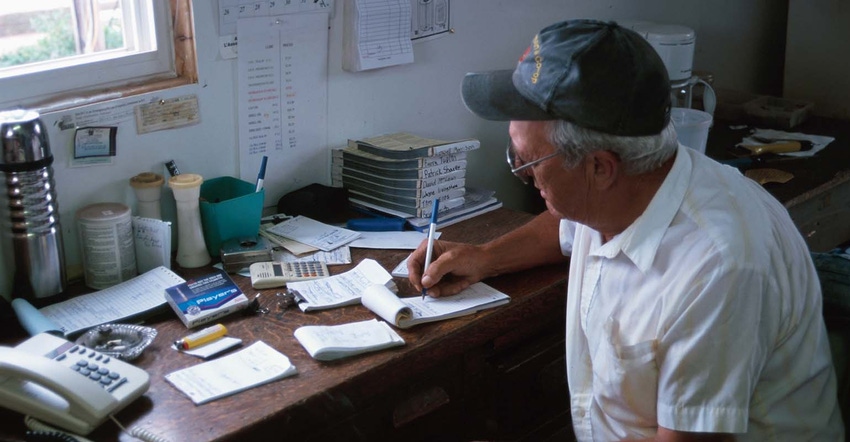
As you move towards the end of harvest, you may also be starting to turn your attention toward preparing for next year. There’s a lot to think about with regard to input decisions, and also getting a clear look at the overall financial state of your farm. This includes the level of success of the past crop year and projections for the next one.
But, as I mentioned last week, the information and insights you can get from reviewing your past crop year and projecting the next one are only as good as the accuracy of the numbers that are going into those analyses in the first place.
Essentially, if the source material has missing, incomplete or inaccurate information, it’s not possible to transform it into helpful insights on the other side.
What are you getting?
This is why your farm books are key. And during busy seasons like harvest, the books can sometimes become neglected, falling behind or developing large gaps. But keeping them as accurate and up to date as possible can make a big difference when it comes to getting the kind of perspective that can help you with making plans and taking action toward a successful crop year in 2018.
Waiting until the very end of the calendar year to get the books in order for your tax accountant doesn’t allow you to get as much out of them as you really could. At that point in the game, it’s often too late to make a real impact.
What’s the current state of your farm books? Are they organized? Accurate? Up to date, even during busy seasons? Can you get the information out of them that you need? That you want? Take some time to evaluate the level of detail and completeness that’s found in your books at any given time of year – starting with the current picture.
Who can help?
Here’s another main driver of your farm books: the central person who’s in charge of handling them. Often on the farm, this may be a family member or employee, or perhaps it’s even you as the farm leader.
No matter who it is, they need to be a good fit for that job. What I mean is that their skills, talents and passions need to line up with the job description of what it means to be a great bookkeeper.
Typically, this involves responsibilities like being able to deal with a large amount of detail, while being very precise and accurate. This person needs to actually enjoy things like working with spreadsheets and going line by line through a ton of numbers. Plus, they need to have the ability to focus on this for long periods of time.
Chances are that if those things don’t come at least somewhat naturally to them, they may avoid bookkeeping tasks, finding ways to bypass them. It may end up being a real struggle to get information from your bookkeeper. The numbers may not be ready, organized or up to date until very late in the game – or maybe not ever at all.
When the numbers do become available, the books might be so incomplete or disorganized that it could lead to major inaccuracies. And inaccuracy is not what you want when it comes to your farm books – especially when you’re trying to use that information to understand how you did this past year, or to use in creating forward-looking projections for the next year.
As you continue to work through harvest and wrap up fieldwork, take some time to think about the current quality of your farm books. What action can you take to increase the accuracy and organization of your books? If you find that you and others on your farm may want some assistance with that, you can get in touch with our advisors, including our accounting specialists.
The opinions of the author are not necessarily those of Farm Futures or Farm Progress.
About the Author(s)
You May Also Like






